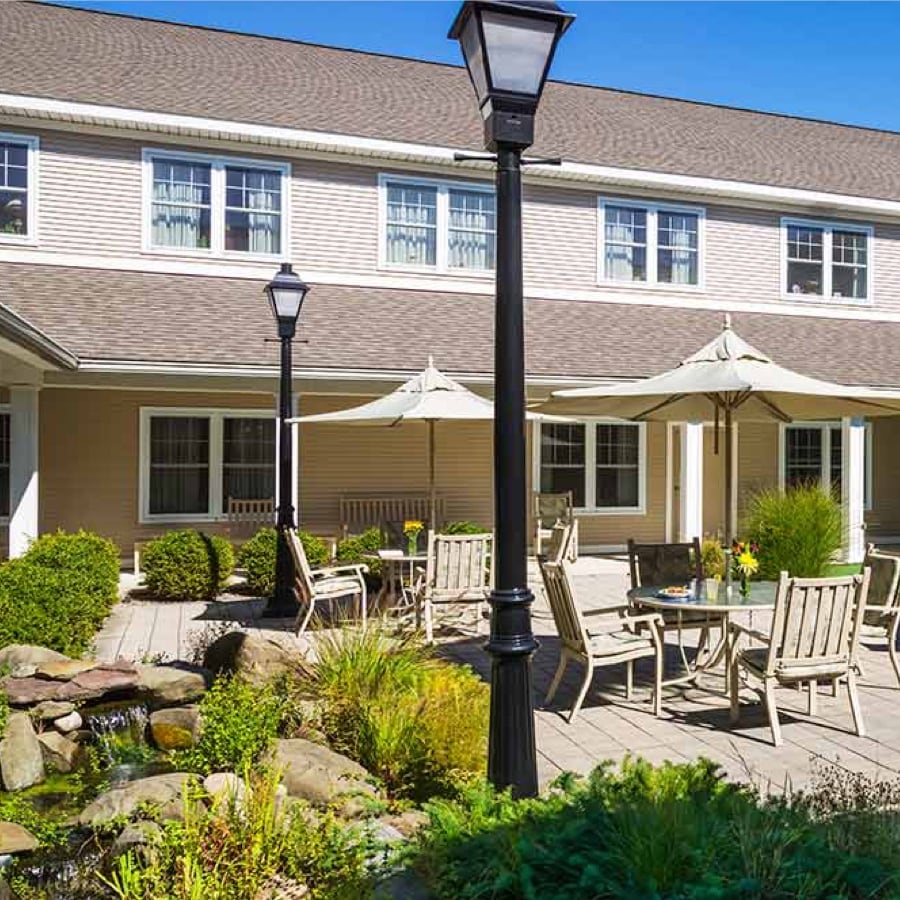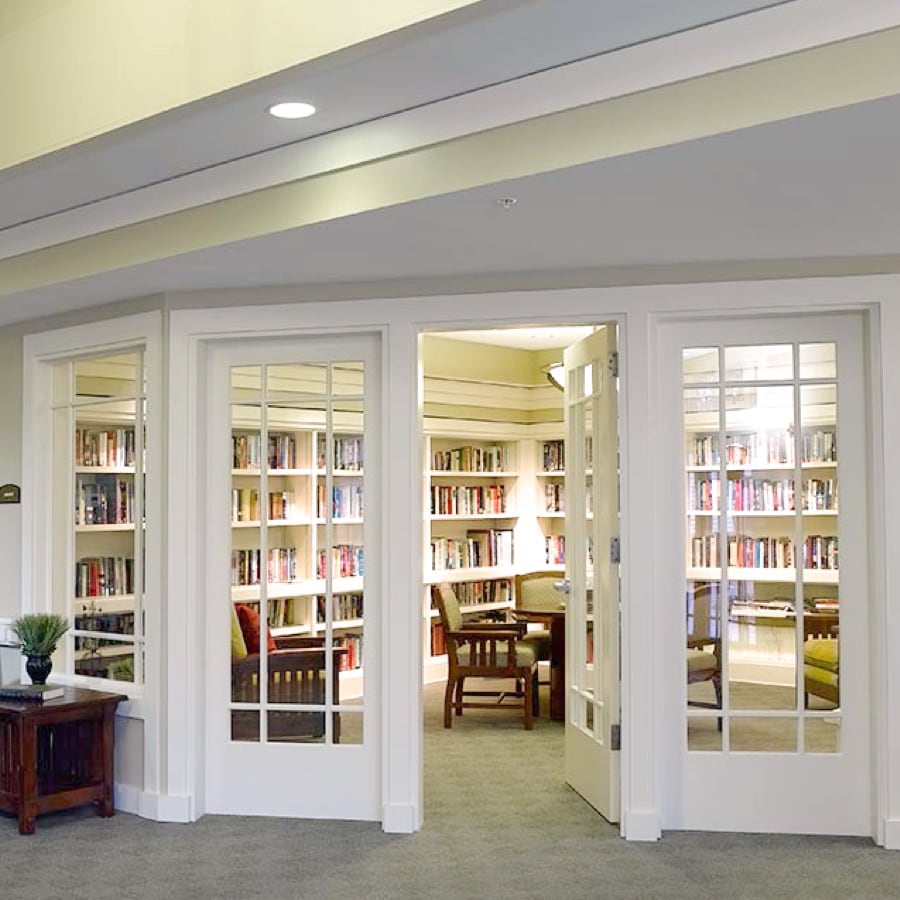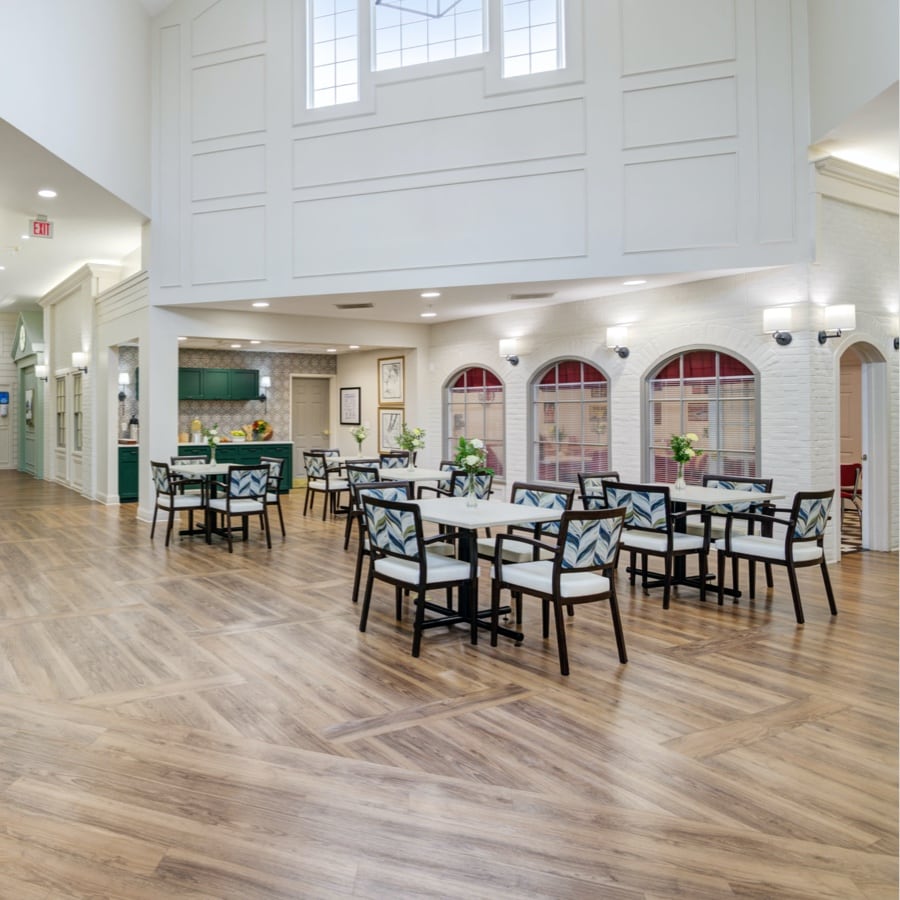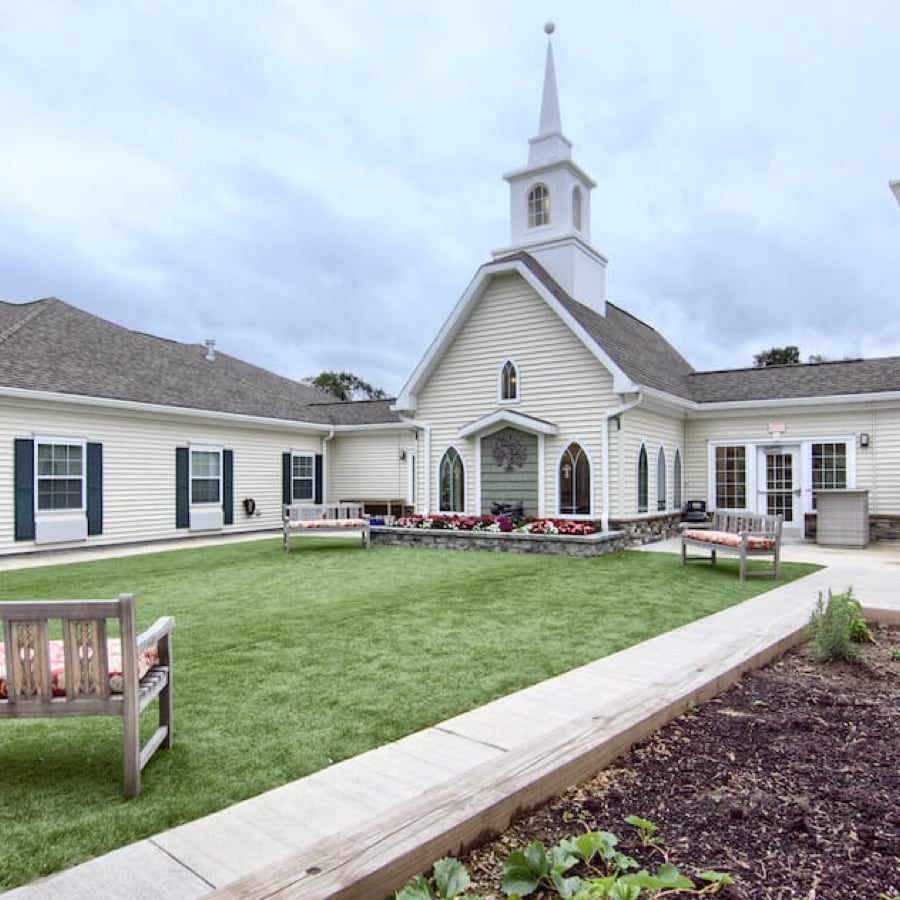The more you learn about memory care and what it includes, the easier it will be to make decisions that are right for you and your family. You will also want to be aware of all possible sources of financial assistance. At Peregrine Senior Living, we are here to help.
How to Pay for Memory Care
According to the Alzheimer’s Association, the average monthly cost for memory care in the United States is $5,000. The cost for memory care does vary greatly however, depending on geographic location, care provided, and private versus semi-private room, and as such can range from $2,000 to $8,000 per month. Fortunately there are options to help offset the cost.
- Family Assets
Families should review their financial assets, such as savings, stocks, bonds, and investments when considering how to pay for memory care. Meeting with a financial advisor and CPA will give you a broad picture of your situation and help you make the right decisions. It’s also a good idea to consult with other family members to see if pooling resources is a possibility.
- Veterans Aid & Attendance Benefit
More than one-third of Americans over 65 are either wartime veterans or are married to one, which means they may qualify for benefits that can help offset the cost of senior care. Yet less than 10 percent of those who qualify have even applied for Veterans Aid & Attendance, which provides a non-service-connected pension to assist in paying for long-term care for wartime veterans or a surviving spouse with limited income. Certain requirements must be met.
- Long-Term Care Insurance
If your loved one already has long-term care insurance, this may be a strategy for how to pay for memory care by covering care that is typically not covered by health insurance, Medicare or Medicaid. Some policies have a specific designated benefit for Assisted Living in a licensed community as well as nursing home care, based on a mental or physical diagnosis.
- Life Insurance Conversion
A largely unknown option for paying for memory care, anyone with an in-force life insurance policy can transform that policy into a pre-funded financial account that will disburse a monthly benefit to help pay for long-term care needs. And unlike life insurance, this account is a Medicaid-qualified asset.
What’s Included in Memory Care
There are many benefits to a quality memory care program. The Peregrine Way™ is our unique approach where we gently stimulate a person’s long-term memory. This allows us to help forge connections between meaningful long-term memories and the current moment. It’s our hope to use long-term memories to help them maintain a connection to themselves and to those around them, so you can hold on to what makes them so special.
Consider these other important aspects of memory care:
- 24/7 care with specially trained staff. Memory care professionals understand verbal and non-verbal communication. They know how to assist with dining and daily activities in a way that respects and empowers each individual. At Peregrine’s memory care communities, our caregivers are experienced at gently guiding your loved one to a higher sense of wellness and purpose.
- Safe, secure environment designed for comfort and calm. Purpose-built memory care communities offer an individual with dementia many advantages, such as proper lighting to avoid shadows. Wider hallways. A flow of space that discourages wandering. Safety features in residences, and more. Each neighborhood is designed to reduce anxiety and create a sense of home.
- Specialized programming tailored to each person. Honoring each person’s story is important. Through The Peregrine Way™, we identify opportunities to engage your loved one’s long-term memory on their own terms. It’s an innovative approach that uses their meaningful past to help forge a brighter present and future. Classical music, religion, familiar animals or tracing genealogy are just some of the ways we stimulate the long-term memories of your loved one.
- Services and amenities. As much as you treasure your loved one and wish that you could give them everything they need at home, that is rarely possible – especially as their memory issues worsen. A memory care setting offers the benefits of services like regular housekeeping, scheduled transportation, access to secured outdoor areas, and areas for exercising and socializing.
- Opportunities for socializing and connecting. Isolation is especially harmful to the health and wellbeing of seniors with Alzheimer’s disease or other forms of dementia. In a memory care community, each individual can interact with others facing the same issues, which often helps them relax and more easily engage. Whether it’s meals, special outings, time outdoors, singalongs or other events, there’s a full activities calendar with something for your loved one.
- Nutritious dining in a purpose-built setting. Everything is given thought when it comes to mealtime, like the menu, the color of the place settings, how many residents are seated at a table, and more. The objective is to create a soothing, welcoming experience that helps ensure each person gets much-needed nutrition.
- Peace of mind for families. When your loved one is comfortably residing in a quality memory community, you can have the reassurance they are receiving excellent care and attention. The Peregrine Way™ is designed to help improve the quality of life for residents and their families through unsurpassed care.
Memory Care at Peregrine Senior Living fills every day with promise. Whether you have questions about our innovative approach, our family support groups, or ideas on how to pay for memory care, please let us know. Learn more about The Peregrine Way™. Contact us today. And for questions about knowing when it’s time for care outside the home, download our free guide, Just the Facts: Your Guide to Memory Care.











